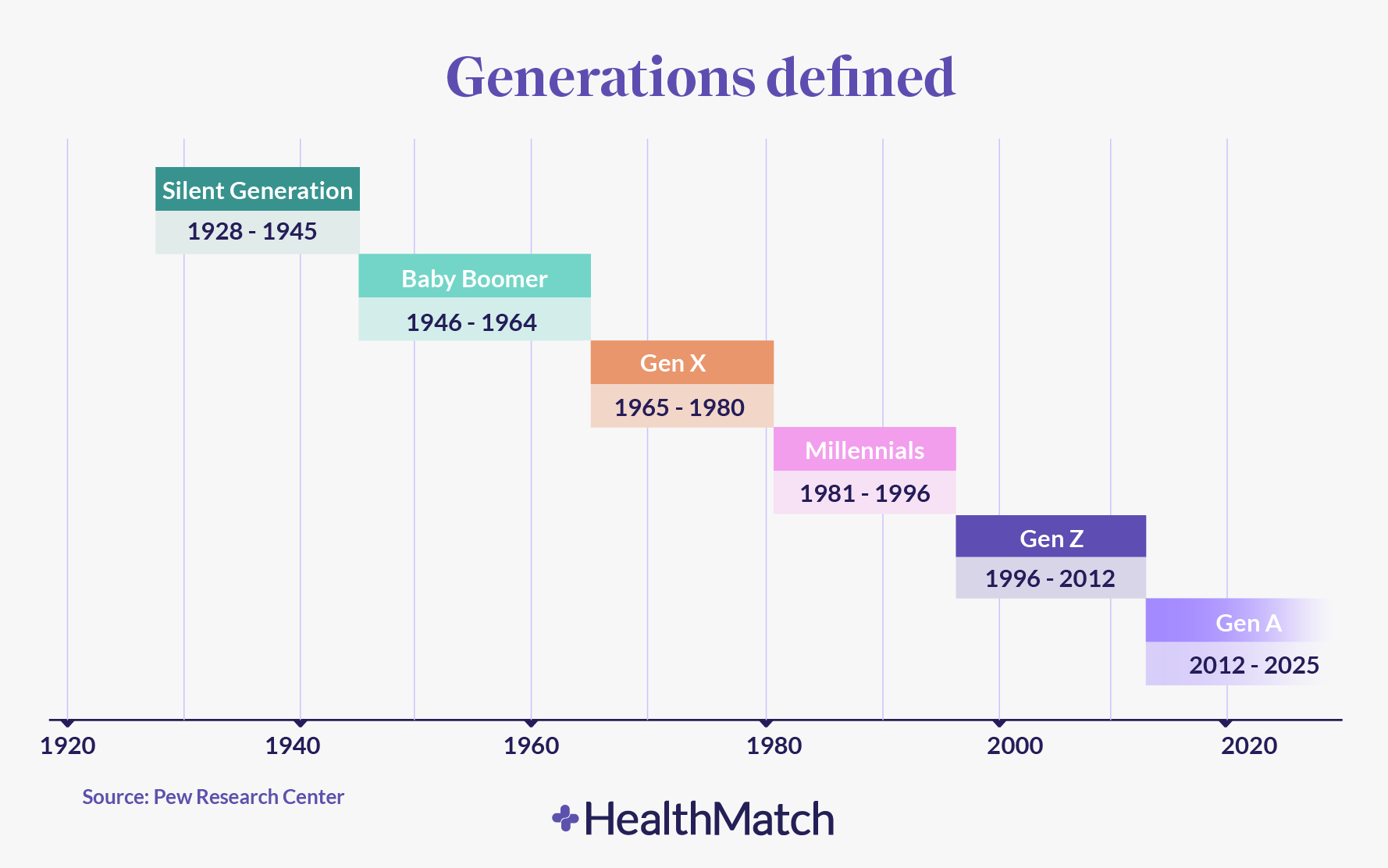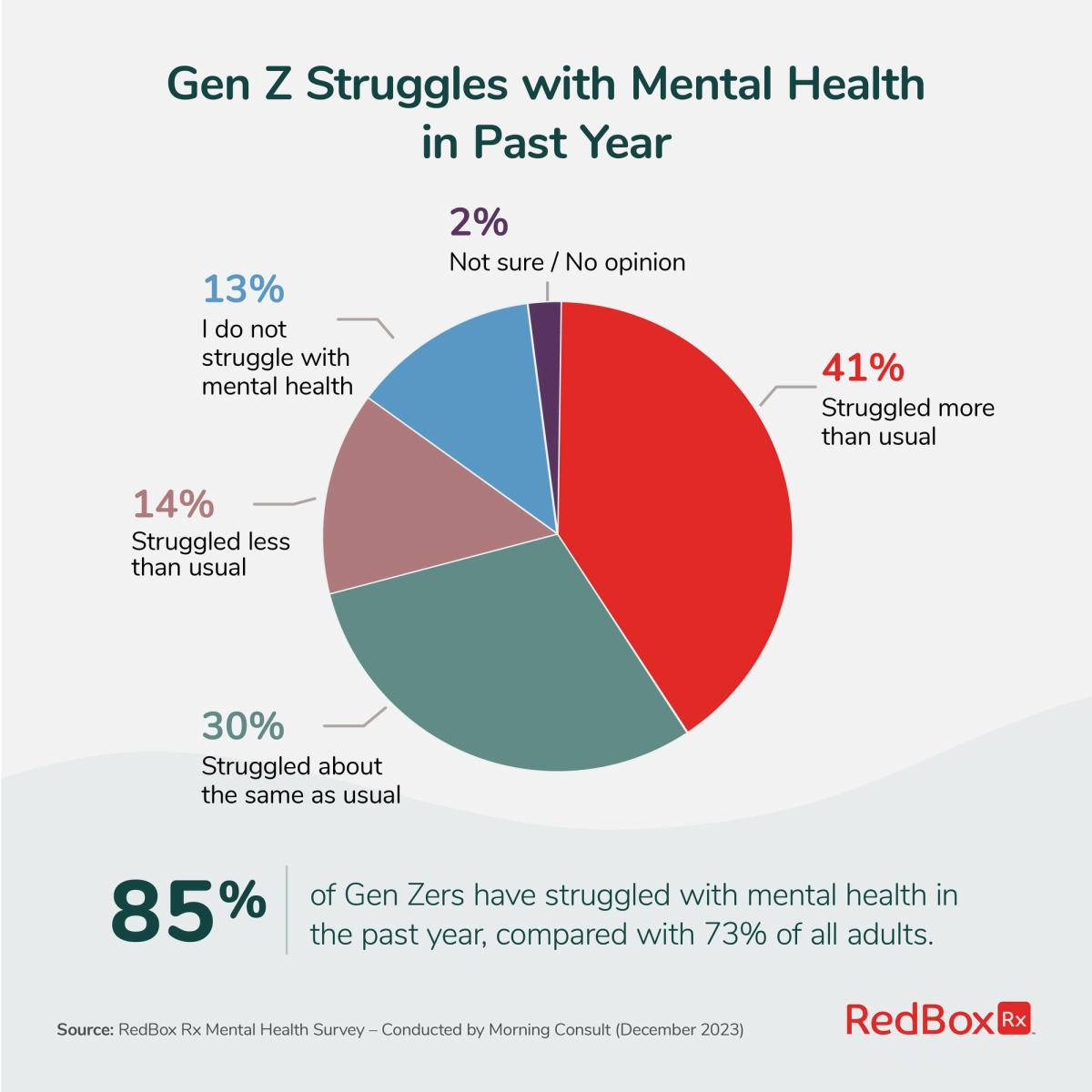Who is Gen Z?
Gen Z is the first generation to grow up fully immersed in digital technology and social media. Their world is characterized by constant connectivity, yet paradoxically, increasing feelings of isolation and anxiety (Twenge, 2019). Understanding their mental health needs requires a nuanced look at their experiences and challenges.

Mental Health Trends in Gen Z
Research shows that Gen Z reports higher rates of anxiety, depression, and suicidal ideation than previous generations (Twenge et al., 2017). Several factors contribute:
- Social Media Exposure: While offering connection, social media often fuels comparison, cyberbullying, and FOMO (fear of missing out) (Odgers & Jensen, 2020).
- Economic and Political Uncertainty: Growing up amid economic recessions, climate crises, and political unrest heightens stress (APA, 2023).
- Academic and Social Pressure: The pressure to succeed in school and build a future in an uncertain world can exacerbate stress and burnout (American College Health Association, 2021).
Read More- Gen Z Slangs
Psychological Challenges Specific to Gen Z
Some of the specific challanges that this generation faces includes-
Digital Overload and Mental Health
Constant notifications and screen time disrupt sleep, impair attention, and increase anxiety (Cain & Gradisar, 2010). The dopamine-driven feedback loops in apps can lead to addictive behaviors and emotional dysregulation (Montag et al., 2021).

Identity and Self-Concept in a Digital Era
Social media platforms create both opportunities and challenges for identity exploration. While some find support for diverse identities (e.g., LGBTQ+ communities), others struggle with authenticity, cyberbullying, and social validation (Valkenburg & Peter, 2011).
Pandemic Impact
The COVID-19 pandemic severely disrupted Gen Z’s education, social lives, and economic prospects. Studies show spikes in depression and anxiety, with long-lasting effects anticipated (Loades et al., 2020).

Supporting Gen Z Mental Health
Support to Gen Z can come in many ways-
- Digital Mental Health Tools- Apps offering cognitive-behavioral therapy (CBT), mindfulness, and mood tracking are increasingly popular and accessible (Firth et al., 2017). However, ensuring efficacy and privacy remains critical.
- School-Based Mental Health Programs- Integrating mental health education and counseling in schools helps early detection and reduces stigma (Weist et al., 2019).
- Community and Peer Support- Peer-led support groups and social media campaigns promote openness and connection (Naslund et al., 2016).
- Family Involvement- Family therapy and psychoeducation can improve communication and resilience (Diamond & Josephson, 2005).
Promising Interventions and Practices
- Mindfulness and Meditation: Reduces stress and improves emotional regulation (Zoogman et al., 2015).
- Digital Detox and Screen Time Management: Encouraging breaks from devices to improve sleep and mood (Woods & Scott, 2016).
- Narrative Therapy: Helping youth reframe their stories to empower identity (White & Epston, 1990).
- Strength-Based Approaches: Focusing on resilience and skills rather than deficits (Saleebey, 2013).
- Culturally Sensitive Care: Tailoring interventions to diverse backgrounds and identities (Sue et al., 2009).
Conclusion
Gen Z faces unprecedented mental health challenges shaped by digital culture, social change, and global uncertainty. However, their resilience, openness, and technological savvy also offer new avenues for support and healing. Understanding their unique psychology is key to fostering a healthier generation.
References
American College Health Association. (2021). National College Health Assessment.
American Psychological Association (APA). (2023). Stress in America™ 2023. https://www.apa.org/news/press/releases/stress/2023
Arnett, J. J. (2000). Emerging adulthood: A theory of development from the late teens through the twenties. American Psychologist, 55(5), 469-480. https://doi.org/10.1037/0003-066X.55.5.469
Cain, N., & Gradisar, M. (2010). Electronic media use and sleep in school-aged children and adolescents: A review. Sleep Medicine, 11(8), 735-742. https://doi.org/10.1016/j.sleep.2010.02.006
Diamond, G. S., & Josephson, A. M. (2005). Family-based treatment research: A 10-year update. Journal of the American Academy of Child & Adolescent Psychiatry, 44(9), 871-878. https://doi.org/10.1097/01.chi.0000165170.60858.e7
Firth, J., Torous, J., Nicholas, J., Carney, R., Pratap, A., Rosenbaum, S., & Sarris, J. (2017). The efficacy of smartphone-based mental health interventions for depressive symptoms: A meta-analysis of randomized controlled trials. World Psychiatry, 16(3), 287-298. https://doi.org/10.1002/wps.20472
Lazarus, R. S., & Folkman, S. (1984). Stress, appraisal, and coping. Springer.
Loades, M. E., Chatburn, E., Higson-Sweeney, N., Reynolds, S., Shafran, R., Brigden, A., … & Crawley, E. (2020). Rapid systematic review: The impact of social isolation and loneliness on the mental health of children and adolescents in the context of COVID-19. Journal of the American Academy of Child & Adolescent Psychiatry, 59(11), 1218-1239.e3. https://doi.org/10.1016/j.jaac.2020.05.009
Montag, C., Duke, É., & Markowetz, A. (2021). On the psychology of addictive digital device use. Current Opinion in Psychology, 36, 76-82. https://doi.org/10.1016/j.copsyc.2020.06.003
Naslund, J. A., Aschbrenner, K. A., Marsch, L. A., & Bartels, S. J. (2016). The future of mental health care: Peer-to-peer support and social media. Epidemiology and Psychiatric Sciences, 25(2), 113-122. https://doi.org/10.1017/S2045796015001067
Odgers, C. L., & Jensen, M. R. (2020). Annual research review: Adolescent mental health in the digital age: Facts, fears, and future directions. Journal of Child Psychology and Psychiatry, 61(3), 336-348. https://doi.org/10.1111/jcpp.13190
Saleebey, D. (2013). The strengths perspective in social work practice (6th ed.). Pearson.
Sue, S., Zane, N., Hall, G. C. N., & Berger, L. K. (2009). The case for culturally competent mental health services: Research evidence and clinical practice. Journal of Consulting and Clinical Psychology, 77(1), 212-219. https://doi.org/10.1037/a0013480
Twenge, J. M. (2019). iGen: Why today’s super-connected kids are growing up less rebellious, more tolerant, less happy–and completely unprepared for adulthood. Atria Books.
Twenge, J. M., Cooper, A. B., Joiner, T. E., Duffy, M. E., & Binau, S. G. (2017). Age, period, and cohort trends in mood disorder indicators and suicide-related outcomes in a nationally representative dataset, 2005–2017. Journal of Abnormal Psychology, 128(3), 185-199. https://doi.org/10.1037/abn0000410
Valkenburg, P. M., & Peter, J. (2011). Online communication and adolescent well-being: Testing the stimulation versus the displacement hypothesis. Journal of Computer-Mediated Communication, 16(2), 200-209. https://doi.org/10.1111/j.1083-6101.2010.01517.x
Weist, M. D., Rubin, M., Moore, E., Adelsheim, S., & Wrobel, G. (2019). Mental health screening in schools. Journal of School Health, 89(8), 637-645. https://doi.org/10.1111/josh.12777
Woods, H. C., & Scott, H. (2016). #Sleepyteens: Social media use in adolescence is associated with poor sleep quality, anxiety, depression and low self-esteem. Journal of Adolescence, 51, 41-49. https://doi.org/10.1016/j.adolescence.2016.05.008
White, M., & Epston, D. (1990). Narrative means to therapeutic ends. Norton.
Zoogman, S., Goldberg, S. B., Hoyt, W. T., & Miller, L. (2015). Mindfulness interventions with youth: A meta-analysis. Mindfulness, 6(2), 290-302. https://doi.org/10.1007/s12671-013-0260-4
Subscribe to PsychUniverse
Get the latest updates and insights.
Join 3,045 other subscribers!
Niwlikar, B. A. (2025, May 31). Gen Z Mental Health and 4 Important Ways We Can Support It. PsychUniverse. https://psychuniverse.com/gen-z-mental-health/



